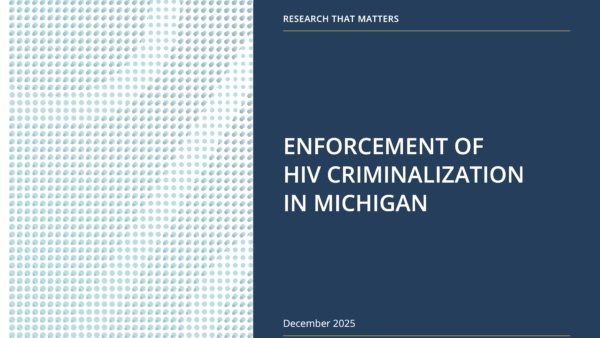By SCOTT SONNER
Associated Press
RENO, Nev. (AP) – Nevada’s Department of Corrections is changing a series of policies and practices that the U.S. Justice Department says illegally discriminate against prison inmates with HIV by housing them separately and denying access to work assignments that can speed their release.
The Justice Department concluded last month the state was violating inmates’ civil rights under the policies based largely on outdated and unfounded fears about the transmission of the virus that causes AIDS.
State Corrections Director James Dzurenda announced late Wednesday that inmates with HIV no longer will be segregated from the general prison population. He also said they will be provided the same opportunities as others to win assignments to work camps where they can earn credits faster to shorten their sentences.
Other changes include new protections intended to keep inmates’ HIV status confidential, and new training for inmates and prison workers alike about how HIV is transmitted.
HIV, the human immunodeficiency virus, causes AIDS. But it cannot be transmitted through ordinary activities such as shaking hands or sharing drinking glasses, according to the U.S. Centers for Disease Control and Prevention.
Lawyers for the American Civil Liberties Union of Nevada who had complained to the Justice Department about the policies said they were impressed with the quick response by Dzurenda, who became the new corrections director in April.
“We are thrilled,” said Amy Rose, the group’s legal director in Las Vegas.
“It appears they took the recommendations from the Justice Department very seriously and took immediate corrective action,” Rose told The Associated Press. “This is good news for inmates who are currently suffering under the previous policy.”
Dzurenda said he has submitted a bill draft request to the Nevada Legislature to formalize some of the changes in state laws and regulations, and that additional changes may be forthcoming.
“In an effort to decrease any negative expectations or fears on the part of non-HIV positive inmates given the new policies above, a pamphlet is being designed covering facts about HIV and the changes in policy at the NDOC,” she said.
Justice Department lawyers warned Nevada’s attorney general in a letter June 20 the state was violating the Americans with Disabilities Act. They said some inmates have been discriminated against – and in some cases threatened and harassed – as a result of the “medically unnecessary” segregation policy that stigmatizes those with HIV.
The federal agency launched an ADA compliance review after receiving complaints from the ACLU and two inmates at the High Desert State Prison in Indian Springs.
Under the new policies only limited medical personnel will have access to the identities of HIV positive inmates and that prison housing classification forms are being revised to eliminate the medical code typically associated with HIV status, Dzurenda said. If an inmate meets all the requirements for a work assignment, he or she will be considered like any other inmate, regardless of HIV status, he said.
Rose said she’s especially glad Dzurenda is submitting a bill draft request to amend the state statutes that conflict with the recommendations, and she hopes they will “continue to work toward educating inmates and staff about the real facts about HIV and the change in policy.”
Copyright 2016 The Associated Press. All rights reserved. This material may not be published, broadcast, rewritten or redistributed.









